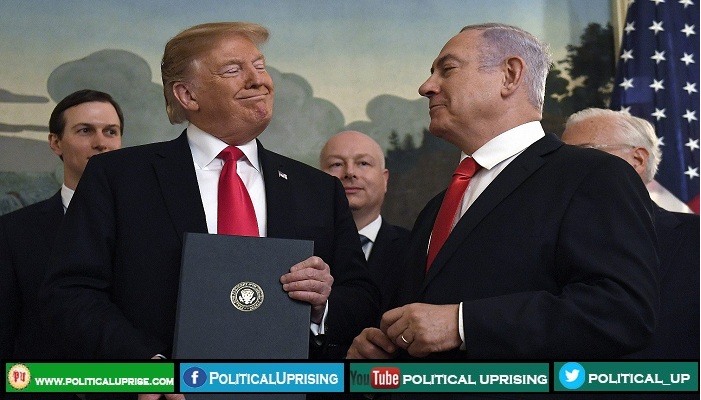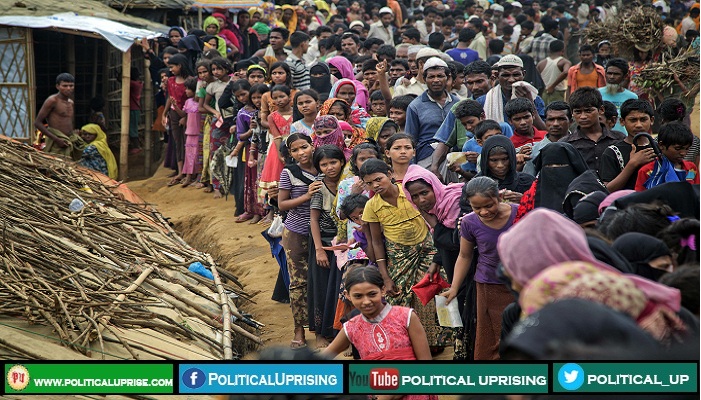Japan,china and South Korea leaders agreed to help promote North Korea-US dialogue to end North Korea’s nuclear programme.
Trilateral meeting in Chengdu is also the first one-on-one between Japan’s Abe and South Korea‘s Moon in 15 months.
South Korean President Moon Jae-in said on Tuesday that South Korea, China, and Japan agreed to help promote North Korea-US dialogue to end North Korea’s nuclear programme, during their trilateral summit in Chengdu, China.
President Moon said peace on the Korean peninsula was in the “common interest” of the three countries.
Read More:
- Independent Group for Change failed to win a parliamentary seat
- New Zealand to end five months long buy-back scheme
- Scotland minister asked Johnson to grant second referendum
- China exclude more tariffs on US goods before trade deal
- Tony Blair urged Labour party to end socialism
- Egypt’s el-Sisi says Saudi-led bloc position on Qatar ‘unchanged’
North Korea has set a year-end deadline for the United States to change what it says is a policy of hostility amid a stalemate in efforts to make progress on their pledge to end the North’s nuclear programme and establish lasting peace.
North Korean leader Kim Jong Un and US President Donald Trump have met three times since June 2018, but there has been no substantive progress in dialogue while the North demanded crushing international sanctions be lifted first.
Speaking in the southwestern Chinese city of Chengdu following a meeting with Chinese Premier Li Keqiang and Japanese Prime Minister Shinzo Abe, Moon said the three countries agreed on the need for close communication.
China is hosting the leaders of squabbling neighbours South Korea and Japan, as Beijing flexes its diplomatic muscle to encourage a truce between the United States‘s two key military allies in Asia.
The trilateral meeting is also the first one-on-one between Japanese Prime Minister Shinzo Abe and South Korean President Moon Jae-in in 15 months.
Ties between Seoul and Tokyo have hit rock bottom in recent months over trade issues and other disputes related to decades of bitter wrangling over Japan’s 1910-45 occupation of the Korean Peninsula.
The United States has frequently urged its two allies to bury the hatchet, worried that their poor relations were complicating diplomacy in Asia although it has held off on direct mediation.
“As the region’s major power, China hopes to show its diplomatic presence to the world by bringing the Japanese and South Korean leaders to the same table,” Haruko Satoh, professor and expert on Chinese politics at Osaka University, told the news agency.
Beijing’s role as diplomat could also help avert global attention from its domestic issues, Satoh suggested, including the continuing pro-democracy protests in Hong Kong.
South Korean President Moon said at a meeting with President Xi Jinping in Beijing on Monday that he “highly” appreciates China’s “important role in securing denuclearisation and peace on the Korean Peninsula”.
And at his own separate meeting with Xi in Beijing Monday, Japanese Prime Minister Abe said China and Japan have a “big responsibility for peace, stability and prosperity” in the region.
Nuclear talks between Pyongyang and Washington remain deadlocked, and Pyongyang has threatened a “Christmas gift” to the US if it does not offer to ease the sanctions imposed on Pyongyang by the end of the year.
US officials believe that North Korea may test an intercontinental ballistic missile which would destroy US President Donald Trump’s argument that he has succeeded in reducing risks from North Korea.
Before leaving for China, Abe told reporters at his office that links with Seoul remain “severe”.
“But considering the security environment in East Asia, I recognise that relations between Japan and South Korea as well as relations among Japan, the US and South Korea are important,” he said.
However, analysts have warned that the effect China can have is limited.
“There isn’t much Beijing can do on the Seoul-Tokyo row,” said Yun.
The relationship between Japan and South Korea is overshadowed by the 35 years of brutal colonisation by the Japanese including the use of sex slaves and forced labour that is still bitterly resented today.
Ties began a downward spiral in recent months after a series of South Korean court rulings ordering Japanese firms to compensate wartime forced labour victims, which infuriated Tokyo, who insisted the matter had been settled by a 1965 treaty between the two countries.
Seoul then threatened to withdraw from a key military intelligence-sharing pact, although it reversed course in November and agreed to extend it “conditionally”.
Japan,china,South Korea leaders agree to promote North Korea-US dialogue.



